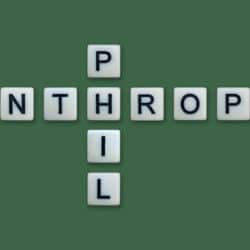Trust-based philanthropy seeks to transform the relationships between philanthropic organizations and non-profits by identifying systemic inequalities and addressing inherent power imbalances. In an Indigenous context, a trust-based approach centres Indigenous leadership, knowledge, and expertise.
Values of gifting, sharing, and caring are deeply ingrained across Indigenous cultures. These generations-old traditions of reciprocity, mutual responsibility, and respect can inform much of the work of modern philanthropy. This is why The Circle on Philanthropy (The Circle) and the Mastercard Foundation are partnering with Indigenous-led organizations to support and strengthen Indigenous-led approaches to philanthropy that align with Indigenous values and cultures, as well as Indigenous self-determination.
This is part of a growing movement across North America toward trust-based philanthropy, an approach that seeks to transform the relationships between philanthropic organizations and non-profits by identifying systemic inequalities and addressing inherent power imbalances. In an Indigenous context, a trust-based approach centres Indigenous leadership, knowledge, and expertise; it means creating partnerships with Indigenous-led organizations and Indigenous communities to harness the resources and supports they need to meet complex local challenges and maximize impact.
Trust-based approaches … focus on shared learning, seeking equity, co-creation, and transformation, rather than prescribed short-term fixes.
Sharon Hobenshield, Kw’umut Lelum Foundation
Sharon Hobenshield, executive director at Kw’umut Lelum Foundation, one of the first Indigenous-owned and -led community foundations in British Columbia, says that philanthropic approaches involving Indigenous Peoples and communities need to be informed by an understanding of Canada’s history, including colonialism.
“[Otherwise] it is a deficit approach that ignores the wealth of Indigenous communities’ traditions and practices, along with their self-determining rights. Trust-based approaches seek to change this dynamic with a focus on shared learning, seeking equity, co-creation, and transformation, rather than prescribed short-term fixes,” she says. “While gifting is a deeply rooted tradition among Indigenous people, we are new to the broader philanthropic sector, especially as Indigenous-led organizations and foundations.”
Trust-based approaches are rooted in partnerships of reciprocity between Indigenous people and communities and non-Indigenous societies. They seek to invest in the leadership and capacity of Indigenous-led organizations – to transfer power and control to Indigenous organizations, communities, grassroots movements, and Nations, who have the wisdom to prescribe solutions that make a real difference. This approach respects Indigenous self-determination and creates a ripple effect that can extend to individuals and communities across Canada and beyond.
Our process does not require an application. Our initiatives are created based on conversations with our partners about the needs and how to address them.
Michelle Richard, Ulnooweg Education Centre
Ulnooweg Indigenous Communities Foundation in Atlantic Canada is one of the country’s first Indigenous community foundations and is a leader in this work. A member of The Circle, Ulnooweg was also an early partner of Mastercard Foundation’s EleV program, which supports Indigenous learners on their pathways through post-secondary education and on to meaningful livelihoods. Ulnooweg works to close the gaps between the philanthropic sector and Indigenous communities and invests in the success of Indigenous communities, individuals, and businesses in Atlantic Canada.
“Our process does not require an application,” says Michelle Richard, managing director at Ulnooweg Education Centre. “Our initiatives are created based on conversations with our partners about the needs and how to address them. We are storytellers. This process embeds a piece of our culture into the process.”
To advance the trust-based approach, in 2021 the Mastercard Foundation contributed $12 million to four Indigenous-led organizations with deep knowledge about how best to meet the needs of their communities. The Mastercard Foundation intends to keep this work going through 2022 and onward.
The four organizations are the Kw’umut Lelum Foundation, led by nine Coast Salish Nations, which collaborates with private and public donors to expand cultural, economic, social, educational, and recreational access in support of Indigenous children and their families; the First Peoples’ Cultural Foundation, which supports the vitality of Indigenous languages, arts, and cultural heritage in BC through funding to Indigenous organizations and communities; the Arctic Indigenous Fund, led by young Indigenous leaders from across the Arctic to distribute philanthropic funding in ways that better support the needs of Northern communities and align with existing Indigenous-led efforts; and Canadian Roots Exchange, a national Indigenous youth-led organization that collaborates with communities to provide programs, grants, and opportunities that are grounded in Indigenous ways of knowing and being and designed to strengthen and amplify the voices of Indigenous youth.
One of the most important lessons I ever learned is that philanthropy is a unique ecosystem built on mutual need. … Trust-based approaches to philanthropy remind us that these relationships are not just contractual, but also built on reciprocity.
Hillory Tenute, Canadian Roots Exchange
Additional funds were provided to partner with The Circle, an Indigenous-led organization working adjacent to the settler philanthropic sector in Canada. The Circle works to transform philanthropy and contribute to positive change between settler philanthropy and Indigenous communities by creating spaces of learning, innovation, relationship-building, co-creation, and activation. In this initiative, The Circle serves as a central convener, storyteller, and thought partner by sharing experiences, ideas, and strategies in reciprocity alongside the four groups participating in the initiative, capturing and expanding learning this year and beyond. All four organizations have the relationships and expertise to facilitate transformation and direct resources to Indigenous-led, community-based solutions.
“One of the most important lessons I ever learned is that philanthropy is a unique ecosystem built on mutual need,” says Hillory Tenute, executive director at Canadian Roots Exchange. “We often consider grantees as the groups that need funding and funders as the group who provide it. This perspective looks at the relationship as one-sided. But funders need grantees just as much. Funders have their own stakeholders to report to, their own priorities to meet. At the end of the day, funders need great projects to put resources into. Trust-based approaches to philanthropy remind us that these relationships are not just contractual, but also built on reciprocity.”
Mastercard Foundation, The Circle, and Indigenous partners are keen to learn more about the impact of working in this way. This includes a commitment to demonstrating significant outcomes, engaging in this work with new partners, and sharing the approach across the philanthropic sector.
Our partnership allows us to support youth and break down barriers in a manner that is responsive to real-time issues, due to our staff with boots on the ground, embedded in the communities that we serve.
Michelle Richard
The creation of Indigenous foundations is an often-overlooked pathway to advance Indigenous self-determination. Support for Indigenous philanthropic entities, funds, and trusts strengthens Indigenous-led solutions, governance, and nation rebuilding. Indigenous direction and control over the flow of philanthropic dollars helps remove systemic barriers and discriminatory practices and revitalizes Indigenous philanthropic practices.
“Our partnership allows us to be proactive instead of reactive to the needs of our youth and community. It allows us to support youth and break down barriers in a manner that is responsive to real-time issues, due to our staff with boots on the ground, embedded in the communities that we serve,” Richard says.
The transformative power of trust-based philanthropy lies in its capacity to reshape relationships. It requires a commitment to reciprocity – for grantmakers to be in relationship with non-profits, communities, charities, grassroots movements, and others organizing in this space, and to listen, learn, co-create, and reduce power imbalances.
Gifting extends to the natural world, where we give and receive to demonstrate respect and ensure balance and harmony for our mutual existence among all our relations and with all of creation.
Sharon Hobenshield
Under the Mastercard Foundation and The Circle’s trust-based approach, the focus is on the relationship as opposed to reporting. The foundation plays an ongoing role as supporter and thought partner. Conversations are focused on gathering key learnings, applying insights to improve programs in real time, and developing best practices and models for trust-based approaches that can be applied internally and shared widely.
“We must work in a relational way, learning together and responding to the fluidity that surrounds us,” says Hobenshield. “Gifting extends to the natural world, where we give and receive to demonstrate respect and ensure balance and harmony for our mutual existence among all our relations and with all of creation.”
Indigenous Peoples have always practised philanthropy through their traditions, ceremonies, and laws of giving and sharing. Trust-based approaches may be new to many in the field, but they are long-held traditions for Indigenous people.
By providing grantees the agency to self-determine their funding, we often end up with more supportive funding systems where both groups are meeting equally to support community-driven and accountable change.
Hillory Tenute
Everyone has a role to play in reconciliation and supporting Indigenous self-determination. Governments, the private sector, and philanthropic organizations are being called on to support Indigenous leadership, adopt Indigenous innovations, and learn from Indigenous expertise. One important action funders can take today is to implement a trust-based approach – to centre reciprocity, to transfer power, resources, and decision-making to Indigenous organizations, foundations, communities, and grassroots organizations.
“The most important move that a funder can make in this system is shifting their perspective to believing that grantees want their projects to be successful and have the knowledge and expertise to manage the direction of their projects in a way that is both beneficial for the communities they serve and accountable to funders,” says Tenute. “By providing grantees the agency to self-determine their funding, we often end up with more supportive funding systems where both groups are meeting equally to support community-driven and accountable change.”
The illustration that accompanies this piece is by Patuoꞌkn Illustration and Design.

The idea of movement really stuck with me after reading the article. I caught lots of visions of the movement of voices. Voices in conversation, leadership, collaboration, in a forward action but also taking a step back to circle back into Indigenous communities in a deeper, more intentional way – allowing the much-needed space for Indigenous communities to step in with their own traditions and visions for philanthropy. I really wanted to home in on this concept of movement in the voices, as if it were coming to life. The sacredness of this process, the strength of sharing traditions and our visions, enveloped in smudge smoke to cradle these conversations in a blanket of safety. The two people sharing the same hair is a nod to our ancestral ties, how we are all connected spiritually with our ancestors, how they are behind us giving us strength as we move our voices in new ways. They are with us as we take these steps forward sharing our knowledge, and we are beside each other as we speak the words of our ancestors. The vibrations of our voices transcending time and space, giving rise to more self-determination for our people in the philanthropic sector. —Kaylyn Bernard, Patuoꞌkn Illustration and Design


